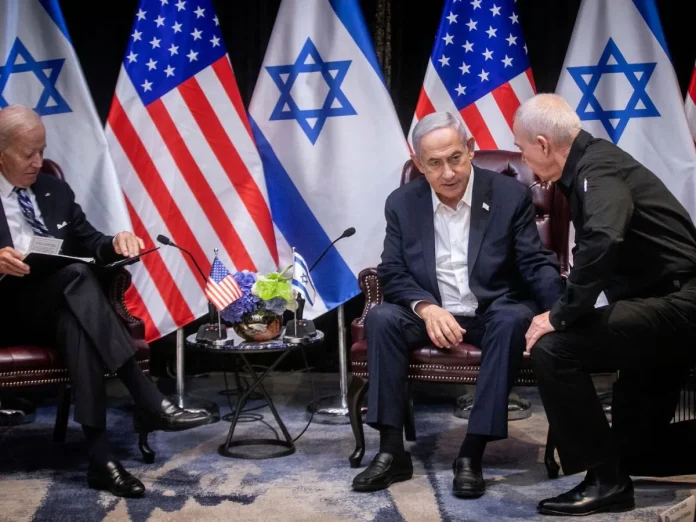U.S. President Joe Biden acknowledged on Friday that while the death of Hamas leader Yahya Sinwar marked a significant development, it would not immediately resolve the ongoing conflict in the Middle East. Speaking after meetings with leaders from Germany, France, and the United Kingdom in Berlin, Biden highlighted that achieving peace in the region would be a difficult and prolonged process.
“Ending this conflict is still going to be difficult,” Biden stated, noting that although Sinwar’s death was a major blow to Hamas, the broader conflict between Israel, Hamas, and other regional players would continue to present significant challenges. The President expressed hope, however, that the international community could work toward some form of stability, emphasizing the importance of collaboration with allies in the region.
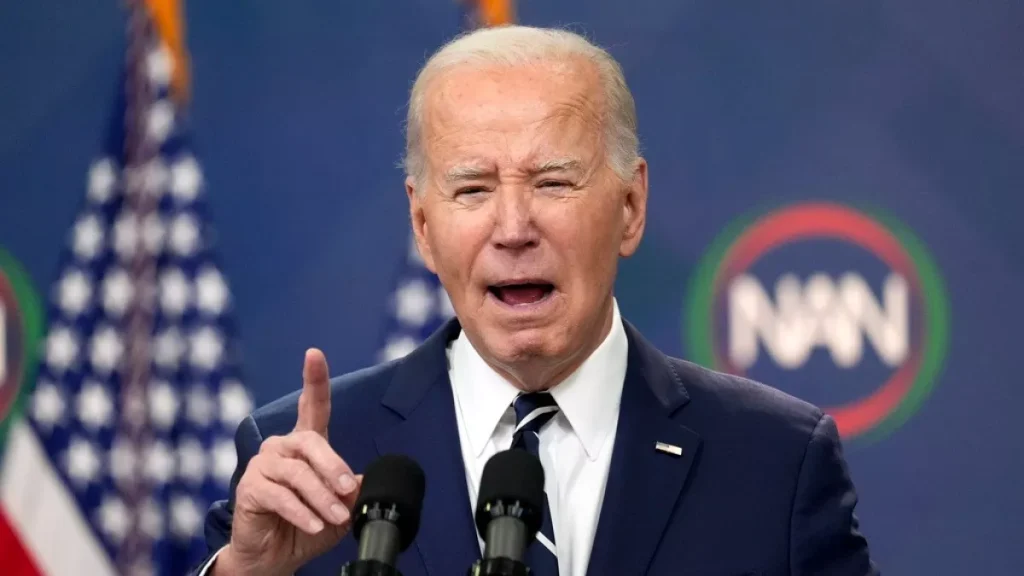
Biden expressed optimism that there was a potential path toward a temporary resolution, which could lead to a ceasefire, particularly in Lebanon. “We think there’s a road to peace there,” Biden said. “It’s going to be harder. It’s going to be difficult. But we’re all on the same page.” The President’s comments signaled the need for multilateral efforts to prevent further escalation, especially in areas like Lebanon, where tensions remain high.
Regarding the situation in Gaza, Biden pointed out that achieving peace there would be more challenging. While expressing confidence in the possibility of progress with Iran, he noted that the situation in Gaza remained more complex. “That ends the conflict, in other words that stops the back and forth,” he said, referring to potential diplomatic efforts aimed at reducing hostilities and securing long-term peace.
The President was asked about the U.S. understanding of Israel’s plans in response to Iran’s missile attack on October 1, a significant escalation in the region. Biden confirmed that he was well-informed, stating, “Yes and yes,” referring to both his knowledge of Israel’s response strategy and its timing. The missile strike, which targeted Israel, had raised concerns that the conflict could spread further into the region.
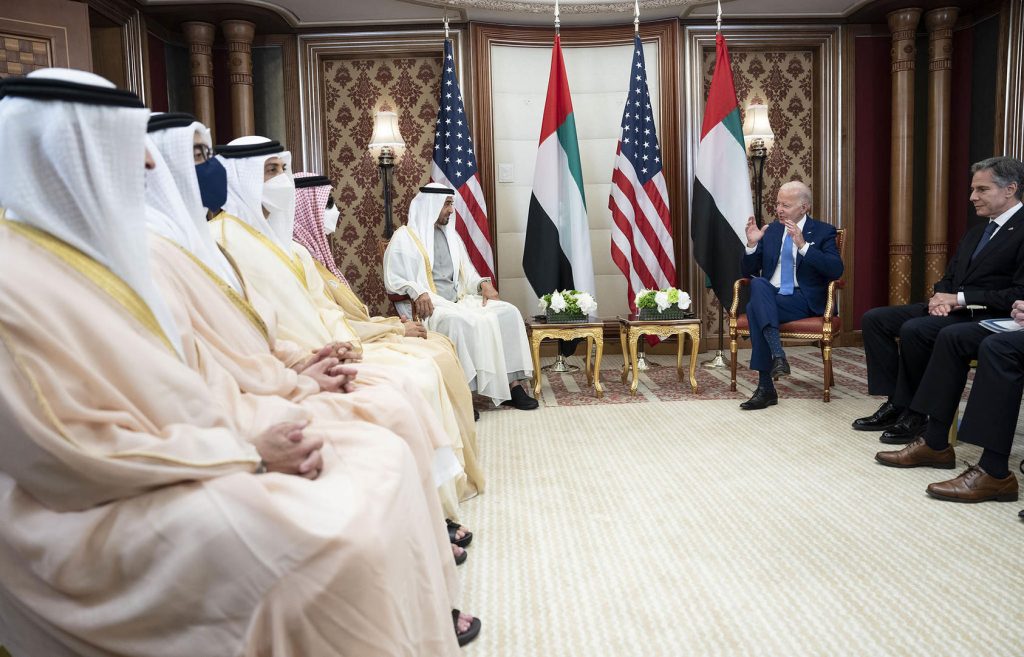
Biden’s trip to Berlin included meetings with German Chancellor Olaf Scholz, French President Emmanuel Macron, and UK Prime Minister Rishi Sunak, where discussions focused on the escalating violence in Gaza and Lebanon, as well as broader regional stability. The U.S. and its European allies have been closely coordinating efforts to prevent the situation from spiraling out of control, particularly as tensions rise along Israel’s borders with both Gaza and Lebanon.
In the wake of these meetings, Biden’s national security team is scheduled to convene on board Air Force One as the President makes his way back to Washington. Secretary of State Antony Blinken and National Security Adviser Jake Sullivan will join Biden for the discussions, which are expected to focus on the latest developments in the Middle East. Blinken is also expected to travel to the region early next week as part of the administration’s continued diplomatic efforts to address the conflict.
The Biden administration is making the release of hostages held by Hamas a top priority, officials have stated. There are currently more than 200 individuals, mostly Israeli citizens, who remain in captivity after Hamas militants carried out a deadly assault on southern Israel. U.S. officials are working with Israeli counterparts to secure their release, while also addressing the humanitarian crisis unfolding in Gaza.
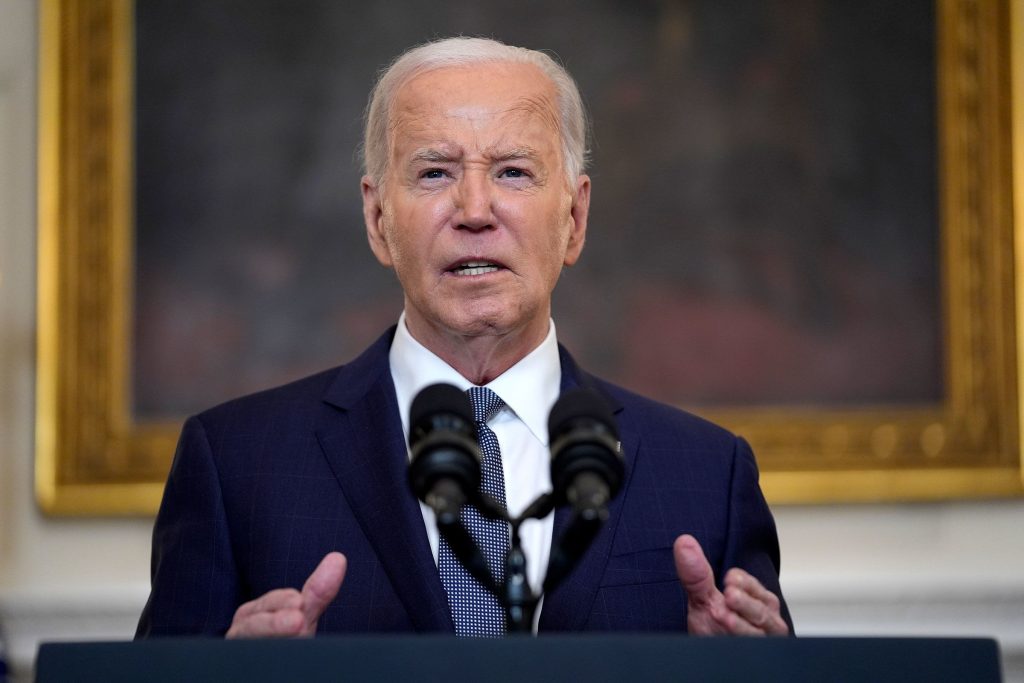
During his time in Berlin, Biden reiterated the importance of close communication between the U.S. and Israel, especially in light of Sinwar’s death. He has also instructed his team to stay in close touch with their Israeli counterparts, as the situation in Gaza continues to evolve. Biden is expected to hold another call with Israeli Prime Minister Benjamin Netanyahu in the coming days to discuss the next steps in the conflict and the ongoing efforts to mediate a ceasefire.
While Sinwar’s death is a significant development, the broader political and military landscape in the Middle East remains fluid. Both Israel and Hamas have continued to engage in intense fighting, with significant casualties on both sides. International calls for a ceasefire have grown louder, but achieving a lasting peace remains elusive.
As the Biden administration navigates these complexities, it is also facing domestic political challenges. The ongoing conflict and the growing humanitarian crisis in Gaza are likely to be key issues in the upcoming U.S. presidential election. While Biden has committed to supporting Israel and ensuring its security, the administration is also balancing calls for increased humanitarian assistance to Gaza and diplomatic efforts aimed at de-escalating the violence.
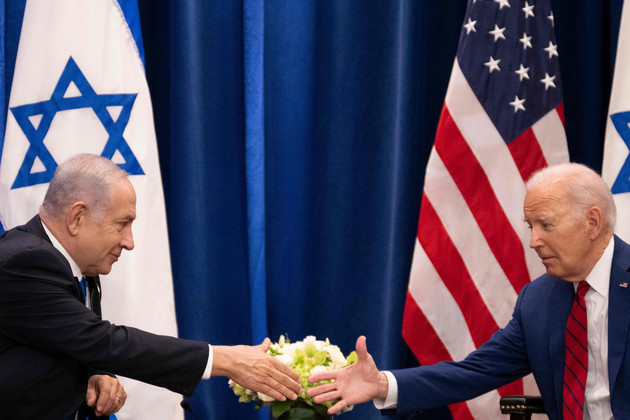
The death of Sinwar marks a critical moment in the conflict, but it is clear that the path to peace will require sustained international efforts and continued dialogue between all parties involved. For now, the Biden administration remains committed to working with its allies in the region to address both the immediate and long-term challenges posed by the Middle East’s volatile situation.

